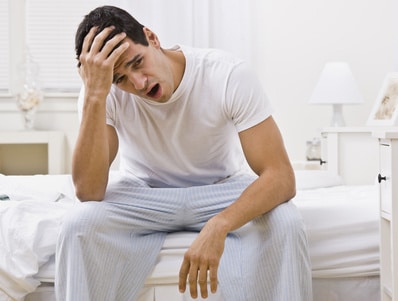
What is sleep apnea?
Sleep apnea occurs when breathing stops and starts repeatedly during sleep. It’s caused when the tissues at the back of your throat over-relax and block your airways. Each time this occurs, your brain briefly awakens you to restart your breathing. These numerous awakenings impact the quality of your sleep, leading to chronic fatigue. Fatigue in turn can contribute to a number of problems including depression, weight gain and safety issues.
What happens when sleep apnea is not treated?
If you don’t recognize sleep apnea symptoms or don’t get treatment, the cycle of poor sleep will continue. Chronic fatigue or a feeling of being always tired is sometimes confused with symptoms of depression. Antidepressant medications are commonly prescribed by doctors, and while they can be beneficial for patients with depression, these medications may contribute to sleep problems. Treating sleep apnea is not a cure for depression, but it can relieve chronic fatigue and increase physical energy during the day.
Options for sleep disorder treatment
Doctors usually prescribe CPAP for sleep apnea. This is a machine that forces air through your nose while you sleep to keep passageways open. CPAP is effective, but some people find it uncomfortable. A dental sleep disorder treatment is available as an alternative. This is a dental appliance that fits comfortably in your mouth, keeping air passageways open so that air can flow freely and you can sleep without interruption. Our Milwaukee dentist can design an oral appliance that will fit you precisely and comfortably.
Find out more about sleep and depression
If you would like to learn more about the link between sleep apnea and depression, contact us to set up a consultation appointment. Sleep disorders and depression can only be diagnosed by a doctor, but if you are diagnosed with sleep apnea, you have choices for treatment. Dental sleep disorder treatment could provide a solution for you.
